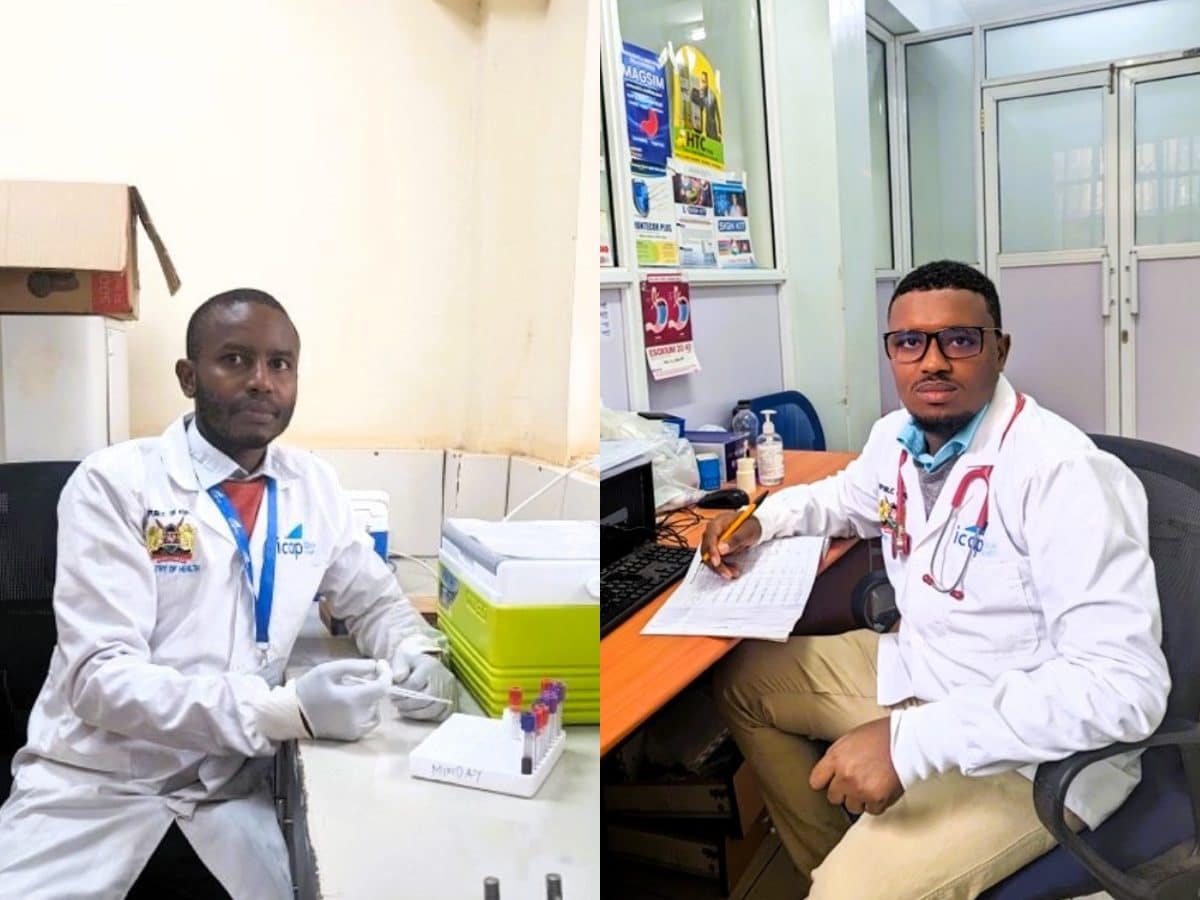An ICAP-supported disease surveillance team in Kenya successfully identified and reported a new human case of Rift Valley fever (RVF) in northern Kenya, leading the country’s Ministry of Health to declare an outbreak on January 24, 2024. RVF is an acute hemorrhagic fever caused by a vector-borne virus carried by mosquitoes. It usually affects the region’s livestock, including cattle, camels, and goats, but can less commonly be transmitted to humans.
In his announcement about the outbreak, the Ministry of Health’s acting director general, Dr. Patrick Amoth, MBChB, MMed, linked it to the aftermath of the El Niño rains, which spurred an increase in mosquito populations and the overall transmission of vector-borne diseases.
“The importance of early detection, reporting, and response to disease outbreaks cannot be overstated,” said Doris Naitore, program director for ICAP in Kenya. “Emerging and endemic diseases of public health concern can potentially inflict significant harm on the population. These diseases can spread rapidly, cause high mortality, influence economic activities, and potentially overwhelm the health care system.”
With financial and technical support from the Centers for Disease Control and Prevention (CDC), ICAP has been collaborating with the Ministry of Health since 2021 to scale up integrated health facility-based surveillance – the routine monitoring of infectious diseases in patients – at hospitals and clinics across the country for 33 priority diseases that are viewed as public health concerns in Kenya, including Rift Valley fever. Surveillance is operational in 11 health facilities, with plans to expand to 20 more in the next two years.
Each participating health facility has an ICAP trained surveillance team consisting of a surveillance officer, a lab technician who draws the blood, and a data clerk. It was the surveillance team in Marsabit County who swiftly identified a new human case of Rift Valley fever in Turbi, North Horr Sub-County, after recognizing certain telltale symptoms in a patient.
“Since October 2021, we have vigilantly monitored cases of acute febrile illness,” explained Mohamed Ali, the surveillance officer for the Marsabit team. “We are happy that these efforts have borne fruits as we picked up the very first case of RVF…which subsequently led to the declaration of an outbreak.”
The surveillance team also played a crucial role by ensuring the prompt and safe transportation of blood samples from suspected cases to the National Public Health Laboratories in Nairobi for testing. This was particularly challenging given the remote location of Marsabit. Since the surveillance program’s implementation, the entire process of testing and identifying suspected infections has shrunk to two weeks when, in the past, it could take months.
A multidisciplinary team that included health officials from the Ministry of Health, the CDC, and ICAP were then deployed to investigate and respond to the outbreak.
“This collaborative program is driven by a commitment to safeguarding the local community’s wellbeing, enabling them to continue their livelihoods and protect their livestock,” ICAP’s Naitore said. “This initiative highlights the significance of vigilant health surveillance systems and demonstrates the powerful impact of partnership and collaboration in advancing public health objectives.”
About ICAP
A major global health organization that has been improving public health in countries around the world for two decades, ICAP works to transform the health of populations through innovation, science, and global collaboration. Based at Columbia Mailman School of Public Health, ICAP has projects in more than 40 countries, working side-by-side with ministries of health and local governmental, non-governmental, academic, and community partners to confront some of the world’s greatest health challenges. Through evidence-informed programs, meaningful research, tailored technical assistance, effective training and education programs, and rigorous surveillance to measure and evaluate the impact of public health interventions, ICAP aims to realize a global vision of healthy people, empowered communities, and thriving societies. Online at icap.columbia.edu








